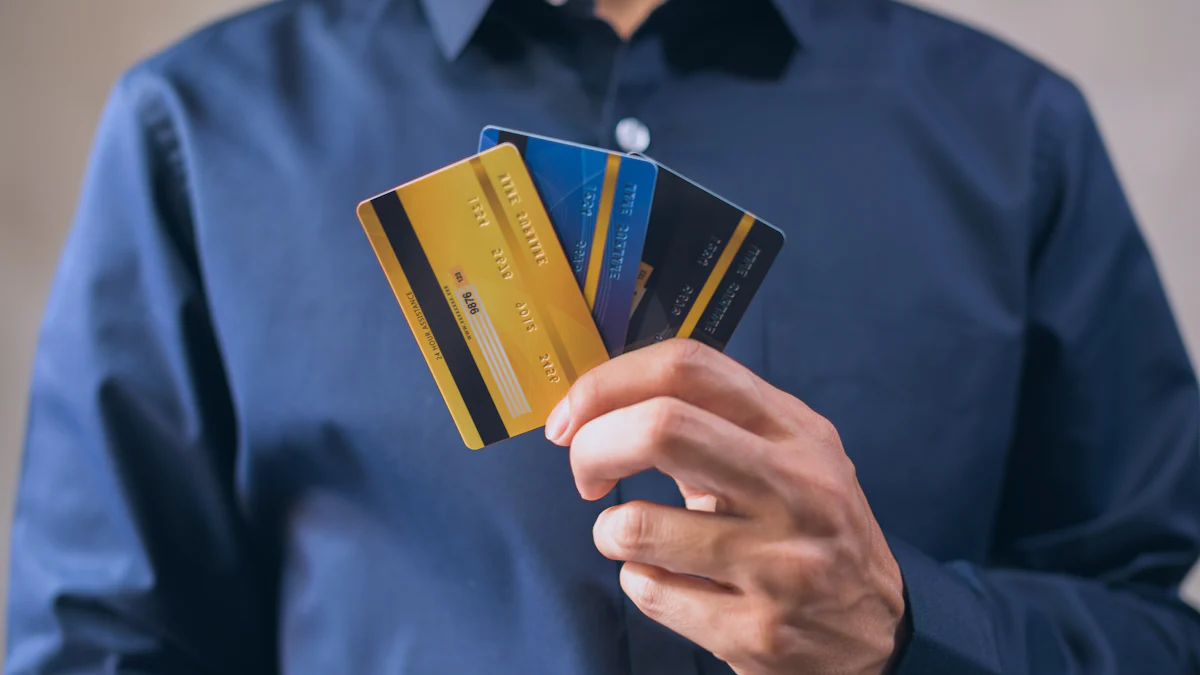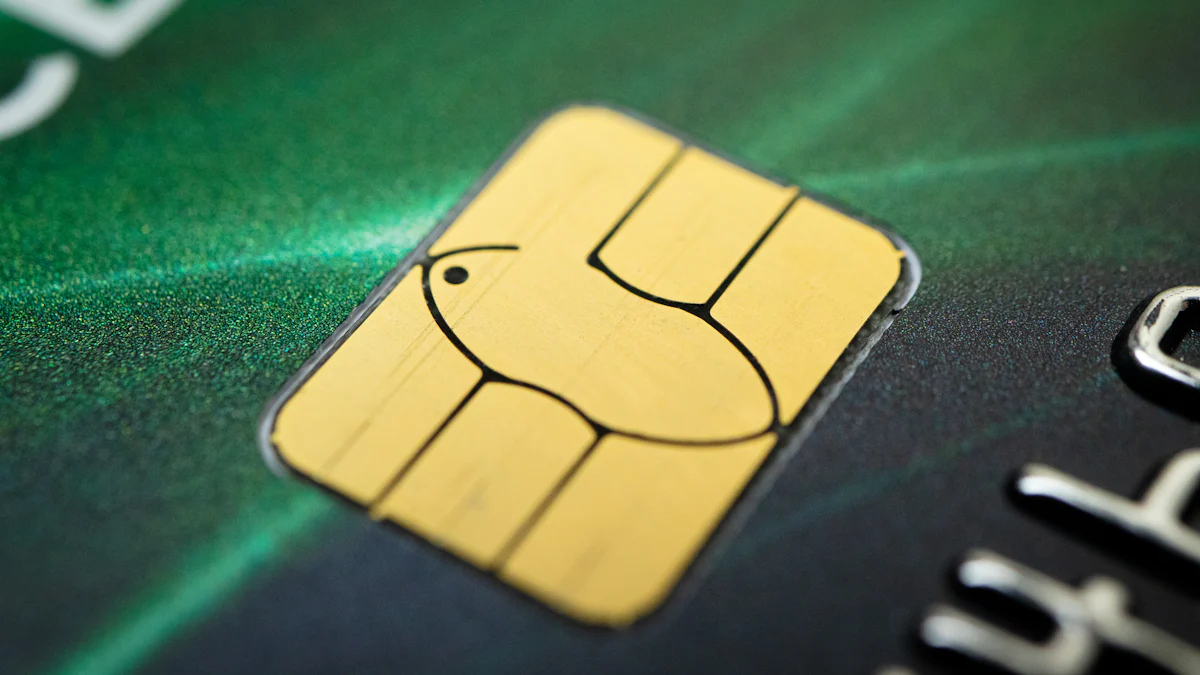
Credit card fraud affects millions of Americans each year. Nearly 52 million people experienced unauthorized charges recently. The median fraudulent charge has increased by 26 percent over the past two years, reaching $100 per transaction. Credit card fraud costs consumers approximately $5 billion annually. Taking proactive steps to protect yourself is crucial. Vigilance and quick action can prevent financial losses. Implementing security measures ensures peace of mind. Protect your financial well-being by staying informed and prepared.
Understanding Credit Card Fraud
What is Credit Card Fraud?
Credit card fraud involves the unauthorized use of another person’s credit card information. Fraudsters aim to make purchases or withdraw funds without paying. This criminal activity affects millions of Americans every year. Fraudsters often steal physical credit cards or obtain card details through various means.
Definition and Types of Credit Card Fraud
Credit card fraud can take many forms. Common types include:
- Stolen Card Usage: Someone uses a stolen credit card to make unauthorized purchases.
- Application Fraud: A fraudster opens a new credit card account in someone else’s name. The perpetrator then uses the card to withdraw large amounts of cash, leaving the victim responsible for the debt.
- Imposter Scams: Fraudsters pretend to be someone else to gain access to credit card information. Consumers lost over $2.6 billion in imposter scams in 2022.
Common Methods Used by Fraudsters
Fraudsters employ various methods to commit credit card fraud. Some common tactics include:
- Phishing Scams: Fraudsters send fake emails or messages to trick individuals into providing their credit card information.
- Skimming Devices: Criminals attach devices to card readers to capture card details during legitimate transactions.
- Data Breaches: Hackers infiltrate databases to steal large volumes of credit card information.
The Impact of Credit Card Fraud
Credit card fraud has significant consequences for victims. Understanding these impacts can motivate you to take preventive measures.
Financial Consequences
Victims of credit card fraud face financial burdens. Unauthorized charges can accumulate quickly. Victims may struggle to prove fraudulent activity and recover lost funds. Credit scores can suffer due to unpaid fraudulent debts. This damage can affect future loan approvals and interest rates.
Emotional and Psychological Effects
Credit card fraud also takes an emotional toll. Victims often experience stress and anxiety. Trust issues may arise, leading to increased caution in financial dealings. The feeling of violation can linger long after the financial issues are resolved.
Steps to Prevent Credit Card Fraud

Secure Your Personal Information
Strong passwords play a crucial role in safeguarding against credit card fraud. Create complex passwords using a mix of letters, numbers, and symbols. Avoid using easily guessed information like birthdays or names. Regularly update passwords to enhance security.
Protecting your online presence also helps prevent credit card fraud. Limit personal information shared on social media platforms. Fraudsters often use this information to guess security questions or impersonate you. Use privacy settings to control who can view your posts and personal details.
Monitor Your Accounts Regularly
Setting up alerts and notifications provides an effective way to monitor account activity. Many credit card issuers offer mobile alerts for transactions. Credit expert John Ulzheimer advises using these alerts to stay informed about purchases, payments, and due dates. Immediate notifications allow you to catch unauthorized transactions quickly.
Reviewing statements for unauthorized transactions remains essential in combating credit card fraud. Examine each statement carefully. Look for unfamiliar charges or discrepancies. Report any suspicious activity to your bank immediately to minimize potential damage.
Be Cautious with Your Card Usage
Safe practices for online shopping reduce the risk of credit card fraud. Always shop on secure websites. Ensure the URL begins with https:// to confirm a secure connection. Avoid saving credit card information on websites. Use virtual cards or payment services for added security.
Avoiding public Wi-Fi for transactions protects your financial information. Public networks lack encryption, making it easier for fraudsters to intercept data. Use a secure, private network when accessing sensitive information or making purchases. Consider using a VPN for an additional layer of protection.
What to Do If You Become a Victim
Immediate Actions to Take
Contacting your bank or credit card issuer
Contact your bank immediately if you suspect credit card fraud. Banks have dedicated teams to handle fraud cases. Quick reporting prevents further unauthorized transactions. Request a freeze on your account to stop any additional charges. Ask for a replacement card with a new number. This action ensures that fraudsters cannot use your old card details.
Reporting to the authorities
Report credit card fraud to the authorities promptly. File a report with the Federal Trade Commission (FTC). The FTC collects information about fraud cases. This data helps in tracking and preventing future fraud incidents. Contact local law enforcement to file a police report. A police report provides an official record of the incident. This document can assist in disputing fraudulent charges.
Long-term Steps to Recover
Monitoring your credit report
Monitor your credit report regularly after experiencing credit card fraud. Obtain free credit reports from the three major credit bureaus: Equifax, Experian, and TransUnion. Review each report for any unfamiliar accounts or inquiries. Dispute any inaccuracies with the credit bureau. Correcting errors helps maintain a healthy credit score. Regular monitoring alerts you to any further fraudulent activity.
Implementing additional security measures
Implement additional security measures to protect against future credit card fraud. Consider placing a fraud alert on your credit report. A fraud alert notifies creditors to take extra steps to verify your identity. Opt for a credit freeze to restrict access to your credit report. This action prevents new accounts from being opened in your name. Use identity theft protection services for added peace of mind. These services offer monitoring and alerts for suspicious activity.
Key Takeaways
Summary of Preventive Measures
Credit card fraud poses a significant threat to financial security. Implementing preventive measures can protect your finances. Start by securing personal information. Use strong passwords and limit sharing on social media. Monitor accounts regularly. Set up spending alerts for immediate notifications. Review statements for unauthorized transactions. Practice caution with card usage. Shop only on secure websites and avoid public Wi-Fi for transactions. Consider using mobile payment options for added security.
Importance of Vigilance and Quick Action
Vigilance remains crucial in preventing credit card fraud. Regular account monitoring helps detect suspicious activity early. Report any unauthorized charges immediately. Quick action minimizes potential damage. Utilize available anti-fraud tools. Continuously improve security measures to combat fraudulent behavior. Protect personal information to reduce risk. Stay informed about emerging security threats. Adapt strategies to address new challenges. By taking these steps, you safeguard your financial well-being.
Protecting yourself from credit card fraud remains crucial for financial security. Implement the strategies discussed to minimize risk. Secure your personal information and monitor your accounts regularly. Practice safe card usage by avoiding public Wi-Fi for transactions. Stay informed about emerging threats and adapt your strategies accordingly. Consider further reading on related topics to deepen your understanding. Financial institutions employ various tools and methodologies to combat fraud. You can contribute by taking proactive steps. Safeguard your financial well-being with vigilance and informed actions.
FAQ on Check Fraud
- Is check fraud a federal crime?
Yes, check fraud can be considered a federal crime, especially when it involves crossing state lines or federally insured institutions. Offenses can also be prosecuted under state laws, depending on the nature of the crime. - What is check kiting?
Check kiting is a form of fraud that involves writing a check from an account without sufficient funds and depositing it into another account, artificially inflating the balances between the two accounts to cover the overdrafts. - Who investigates check fraud?
Check fraud is typically investigated by local law enforcement agencies, bank fraud investigators, and federal agencies such as the FBI or the Secret Service, depending on the scale and complexity of the crime. - Can you get arrested for check fraud?
Yes, you can be arrested for check fraud if there is sufficient evidence of fraudulent intent or illegal activity. Charges can lead to criminal prosecution, fines, and potential jail time. - How long do you go to jail for check fraud?
The length of jail time for check fraud depends on the severity of the crime and whether it’s prosecuted at the state or federal level. Penalties can range from a few months to several years in prison, with harsher sentences for larger-scale fraud.
 Press Coffee
Press Coffee